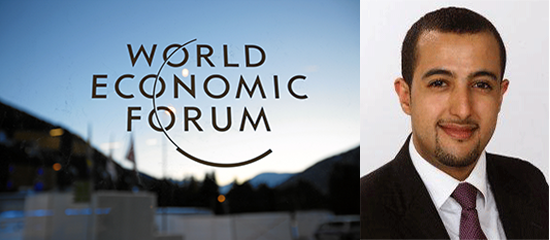The WEF names alumnus Mustapha Mokass, a Young Global Leader
Among 187 entrepreneurial leaders, MSc Sustainability and Social Innovation alumnus, Mustapha Mokass, is named Young Global Leader by the World Economic Forum. Mustapha Mokass shares his impressions and the initiatives he will put in place following his nomination.

I am honored to be part of such an outstanding global forum able to generate significant impact at a global scale to improve the state of the world. I am already exited to meet my extraordinary teammates, all committed people for a better world. Through the YGL platform I am looking forward to continuing the fight against climate change and to support the fight of the poverty through social entrepreneurship.
During the next 5 years as YGL, I want to continue to contribute and lead two key changes through the WEF platform:
I want to leverage on my understanding of the conditions that can make private investors work with international financial institutions such as the World Bank, in building concrete financial mechanisms to foster technology transfer from industrialized to developing countries. This approach remains the most powerful leverage to fight climate change, through supporting emerging countries carbon mitigation by allowing them access existing low carbon technologies ("technological leapfrog") which will be supported by the new Green Climate Fund. By 2020, this fund will provide 100 Bn USD to this aim, however so far we have only 10 Bn USD committed. The international community will have to find the remaining 90 Bn USD by next December for the Paris Climate Summit. To reach this objective, my vision is that we will need to regroup the already existing climate finance and use smart new ways to attract private investment. Also, such new global concessional finance for clean energy projects in developing countries will open new opportunities for environmental companies that build the knowledge of how to access such concessional project finance.
Simultaneously, in OECD countries, it seems to me that there is a significant potential, to promote the emergence of a stable long term carbon price, by leveraging on daily voluntary actions of people through the use of digital tools.
In regards to the Green Climate Fund role, Morocco is the model to follow. The country imports more than 95% of its energy needs. Therefore, an ambitious renewable energy strategy was launched in 2008, which shows its first results today. In fact, Morocco is building the largest Concentrated Solar Plant (CSP) in the world in Ouarzazate (600 MW), with a mix of solar technology in order to develop Moroccan solar energy knowledge step by step, and with a mix of public concessional finance partners and private investors making the project IRR attracting enough and the cost of produced Kwh competitive with the coal Kwh. Within the next 8 years, Morocco will build 4 other CSPs plants and large scale wind farms totalizing 4000 MW production from renewable. An interesting fact is that Morocco is becoming a surprising new destination for “solar tourism” as experts and project developers from all over the world come to see what Morocco is doing in solar energy.
The second change, I want to lead is to help scale-up access to finance for innovative social business models that have the potential to create sustainable jobs especially in supporting small farming goods reach high added value markets (luxury, dietetic, etc.), and develop women’s capacities in entrepreneurship and marketing.
About Mustapha Mokass:
During the past 11 years, since its graduation from HEC Paris MSc Sustainability and Social Innovation, Mustapha Mokass contributed to design smart innovative solutions to three of the most pressing challenges of our times: poverty, food insecurity and climate change. Within the World Bank and United Nations Environment Programme (UNEP), he developed his skills in contributing to innovative risk sharing public private partnerships towards decreasing carbon emissions by scaling-up the transfer of technologies towards developing countries.
Since 2010, he invests his skills for the development of his home country, mobilizing international social investors in support of the agriculture development strategy (green morocco plan) and the renewable energy development strategy (solar and wind). In Casablanca, he founded the sustainability consulting firm Beya Capital specialized in climate and carbon finance. Today, within the organization he newly founded, Climate and Poverty Innovations, he implements concrete financial and technological models to fight poverty and climate change in MENA and Africa regions. He is also co-founder of the Marrakech-based ecotourism social enterprise Terres D’Amanar (http://www.terresdamanar.com).
He authored a book “Fostering a Global Clean Energy Market” L’Harmattan Paris.
Learn more about the program